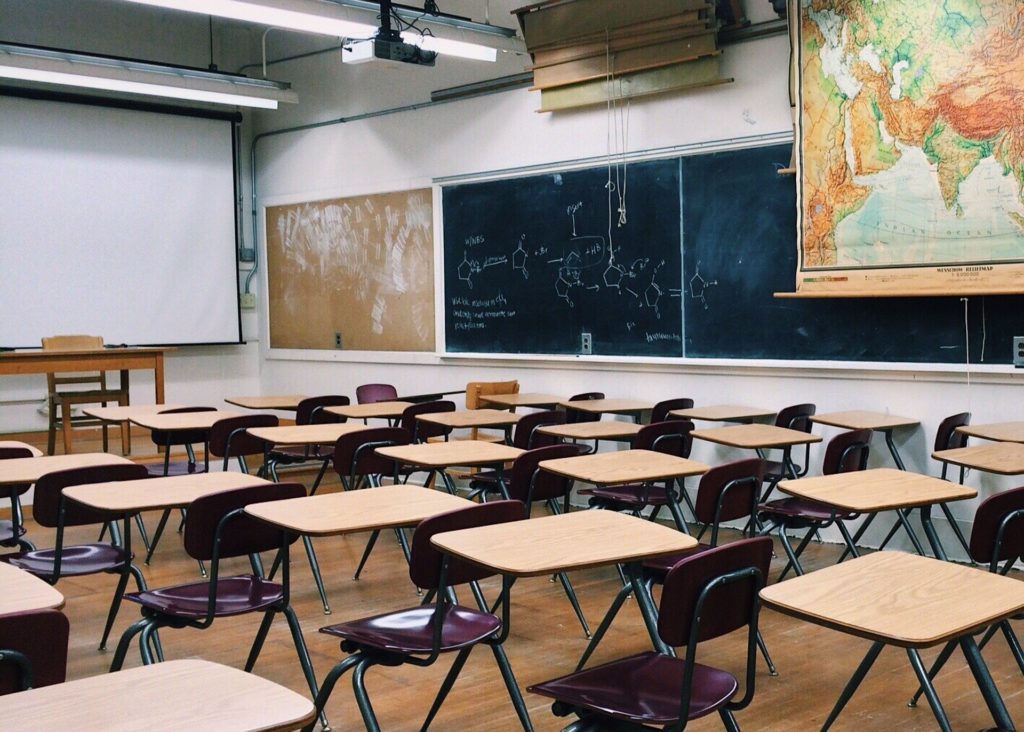Families and school districts around the country are currently determining the best course of action, such as plastic partitions for schools, for potentially reopening classrooms in the fall. It remains to be seen just how many will actually welcome back students in person — and how many families will take advantage of in-person schooling opportunities. But for facilities that are considering bringing in students, teachers, and administrators, developing a strict safety protocol is a must.
Some of these measures may include simple shifts in daily routines like providing facemasks, social distancing, and extra sanitizing. However, schools can also potentially improve health and safety protocols by making some physical changes to their facilities prior to the start of classes. More specifically, adding desk partitions, cafeteria table partitions, and sneeze guards to classrooms and other learning environments can help students and teachers safely interact without as much risk for spreading germs to one another directly.

If you’re currently working on a plan for safely reopening schools in your area, here’s what you should know about these safety measures and making the most of plastic safety partitions for students.
Importance of a Safe Learning Environment as Schools Reopen
Toward the end of last school year, many schools around the country closed for in-person classes and instead pivoted to online learning. This move was designed to protect students, teachers, parents, and support staff from unnecessary risks amid the COVID-19 pandemic. Today, many of those risks still exist. Some states have been able to slow the spread significantly. But there are still many states and metropolitan areas with surging cases.
While it is true that young people tend to be at a lower risk of serious complications from the new coronavirus, that doesn’t mean there aren’t any serious health concerns to consider. Students, even those who are young and healthy, can still carry the virus and spread it to parents, grandparents, teachers, and others who they come into contact with on a regular basis. And some of those individuals may fall into high risk categories. Some young people may also be at a higher risk than others due to underlying health conditions like autoimmune disorders.
This doesn’t mean that students cannot safely return to classes in some instances, as long as educators and parents feel comfortable doing so. But it does mean that common sense safety precautions should be put into place even if students don’t face many serious safety consequences themselves. And sneezeguards for school desks, cafeteria table partitions, and other plastic barriers fall squarely into this category.
In addition to the practical public health benefits provided by putting plastic barriers in place, some students may also feel safer and less distracted knowing their school has taken steps to protect them and their loved ones. Rather than spending all day worrying about coming into accidental contact with others or spreading germs, they can enjoy a relatively safe environment that’s ideal for focusing on their studies.
How Plastic Safety Partitions for Students Can Improve Safety
In addition to providing instructions about wearing face masks, washing and sanitizing hands regularly, and maintaining at least six feet of distance between individuals, plastic safety partitions can help to limit the spread of COVID-19 around schools. These desk partitions and sneeze guards are made of durable, transparent plastic. So they provide crystal clarity that still allows students to see instructions from teachers and interact with other students in their classes when necessary or beneficial. They can also hear clearly through the partitions to easily facilitate conversations and audible learning.
However, these plastic safety partitions for students offer a physical barrier that can slow or stop the spread of viruses and other germs from one individual to another. If one student coughs or sneezes, the particles that could be carrying germs are not likely to make it to another individual if they’re stopped by a physical barrier. These desk partitions can also be cleaned and sanitized easily to kill germs within the school environment.
In addition to installing sneezeguards for school desks, administrators can also install plastic barriers over desks for teachers and administrators and even add cafeteria table partitions to improve safety and sanitation throughout other areas of the school. There are tons of different areas where students may come into contact with one another throughout these campuses. And although it may not be possible to completely eliminate contact or cut out all risk, putting these elements into place may seriously diminish the chance of a large outbreak. And they can ultimately allow students to more comfortably and confidently focus on their schooling, even through difficult and unusual circumstances.
If you’re working on a school reopening plan and want to add sneezeguards for school desks, cafeteria table partitions, and other safety partitions for students, contact Polymershapes to request a free quote on these items right away. Our Coronaguard line of products can work as desk partitions, sneezeguards, and various other barriers around schools, retail facilities, and other essential operations. We use high quality plastic materials that come from top manufacturers. And our team can help to customize plastics for use in a variety of industries, from mass transit providers to energy companies. Our Dayton fabrication center is outfitted with quality machining equipment so we can offer expert conversion capabilities. And our team is always available to answer questions and help clients choose the materials that are best suited to their needs. To discuss our Coronaguard products and other plastic solutions, visit our website and fill out a quote request, and a member of our team will get back to you within 24 hours.